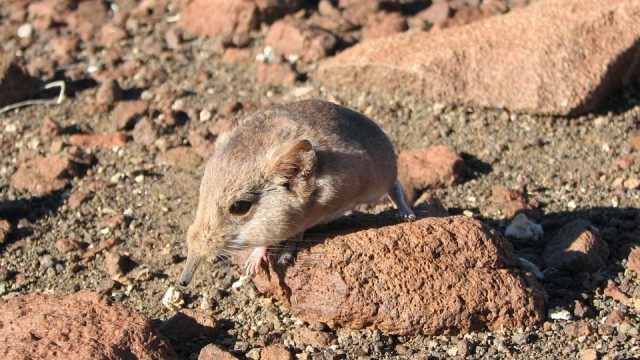221 new species were described by the California Academy of Sciences in 2014, further allaying fears that climate change could be causing a mass extinction event. The species were discovered in sites worldwide, and include ants, fish, sea slugs, plants and even a small mammal. (h/t Watts Up With That)
“Biodiversity scientists estimate that we have discovered less than 10 percent of the species on our planet,” said Dr. Meg Lowman, the Academy’s Chief of Science and Sustainability. “Academy scientists tirelessly explore the unexplored regions of Earth—not only to discover new species, but also to uncover the importance of these species to the health of our natural systems. Our findings help to sustain the future of life for our children and grandchildren. Even in our own backyards new discoveries abound!”
The new species include 110 ants, 16 beetles, three spiders, 28 fishes, 24 sea slugs, two marine worms, 9 barnacles, two octocorals, 25 plants, one waterbear, and one tiny mammal – a new species of elephant shrew found in Africa. Dozens of scientists made the discoveries across all five continents, and in two oceans, with the results being published in 64 separate papers by the Academy.
However, the discoveries haven’t stopped scientists making alarming claims and predicting a mass extinction event. As recently as November, Professor Ed Wilson, an authority on biodiversity at Harvard University told the newspaper I that half the world’s species would be lost by the end of the century.
“We’re making a lonely planet. More than that, if we continue to destroy the biosphere it becomes a very dangerous planet,” he intoned. “If you wiped out enough species, all of those say in South America, then that may be a tipping point where you get enough changes globally to begin a downward spiral.
“A tipping point will come, but we don’t know when. However, the important thing is that it will come, and maybe sooner than we thought if we continue to destroy the natural habitat, and in particular the species,” he said.
His claim is one that even the Intergovernmental Panel on Climate Change (IPCC) is no longer willing to make. In its original Assessment Report, compiled in 2007, it warned that 20 to 30 percent of all species, both animal and plant, faced a high probability of extinction if the world warmed by two to three degrees Celsius. Yet in its more recent incarnation, released last March, the report had downgraded its warnings, admitting that “there is very little confidence that models currently predict extinction risk accurately,” and that “forecasts for very high extinction rates due entirely to climate change may be overestimated.”
The reason for their change of heart was simple: they couldn’t find any evidence to suggest that species are going extinct thanks to climate change. Indeed, to date, not one species can categorically be said to have gone extinct thanks to a changing climate. Polar bear numbers are up, and even the Aldabra banded snail, declared extinct thanks to global warming seven years ago, has been found alive and well in its native habitat.

COMMENTS
Please let us know if you're having issues with commenting.